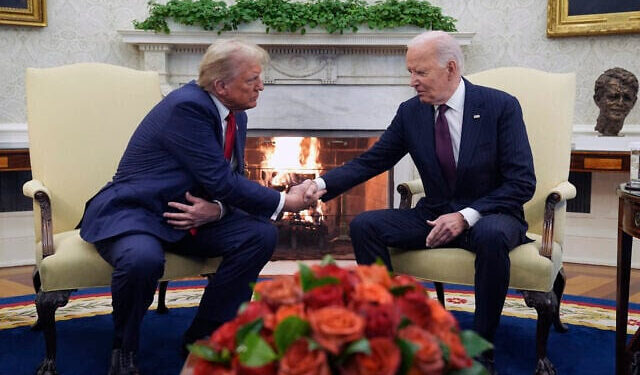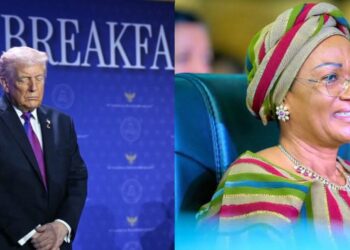
As the dust settles following the recent Gaza ceasefire deal, former U.S. President Donald Trump and current President Joe Biden have both laid claim to playing pivotal roles in the agreement. The question of who deserves credit for the cessation of hostilities, however, remains a contentious topic.
Biden’s Diplomatic Approach
President Biden and his administration played an active role in facilitating the ceasefire through direct diplomatic engagement with key stakeholders. The White House held discussions with Israeli Prime Minister Benjamin Netanyahu and Palestinian officials, while also working closely with regional intermediaries such as Egypt and Qatar.
In addition to these talks, Biden emphasized the importance of protecting civilian lives and reducing hostilities in his public statements. Analysts argue that the administration’s leverage as a primary provider of military aid to Israel likely played a crucial role in pushing for a resolution.
“We support Israel’s right to self-defence, but we also cannot ignore the need for de-escalation and diplomacy,” Biden said in a statement shortly before the ceasefire was announced.
Trump’s Legacy in the Region
On the other hand, former President Donald Trump has highlighted his administration’s influence in shaping the geopolitical environment that led to the ceasefire. His team brokered the Abraham Accords, which normalized relations between Israel and several Arab nations, including the UAE, Bahrain, and Morocco.
Trump’s supporters argue that these agreements laid the groundwork for improved regional relations and demonstrated a model of peaceful negotiation that could have influenced the conditions for a ceasefire. Additionally, Trump’s hardline stance on Iran, a key supporter of Hamas, is cited as an indirect factor that limited Hamas’ operational capabilities.
Shared and Multilateral Efforts
While both leaders seek credit, many experts emphasize the collective nature of brokering a ceasefire. Nations such as Egypt and Qatar, along with the United Nations, played significant roles in facilitating discussions between Israel and Hamas.
“The U.S. is a major player, but ceasefires in this region are never the result of a single individual or country. It’s a multilateral effort,” said Dr. Lina Ahmed, a Middle East analyst.
The debate over who deserves more credit—Biden for his administration’s immediate diplomacy or Trump for his long-term strategic policies—will likely persist. What remains clear, however, is that the deal reflects a convergence of efforts by multiple parties, underscoring the complexity of achieving peace in one of the world’s most volatile regions.

















